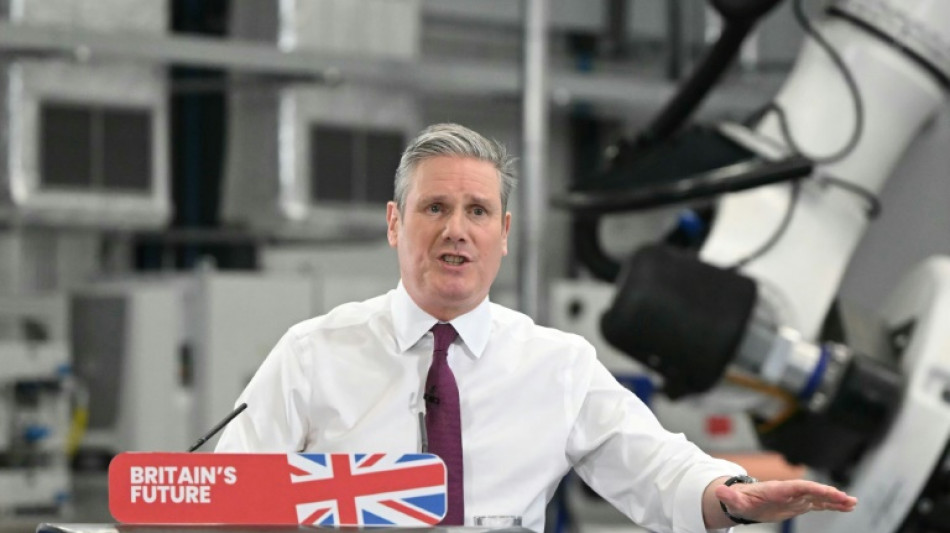

UK's opposition Labour Party ditches £28 bn climate change pledge
Britain's main opposition Labour Party on Thursday ditched a commitment to spend £28 billion a year on green infrastructure if it wins this year's UK general election.
The pledge, originally made in 2021 but watered down as it came under attack from the ruling Conservatives, had been key to Labour's plans for tackling climate change.
The centre-left party said it was still committed to its "Green Prosperity Plan", which seeks to deliver clean power by 2030, but that it was dropping the funding promise.
"Due to the Conservatives crashing the economy and (finance minister) Jeremy Hunt's plans to 'max out' the country's credit card, it would not be possible to reach the previous commitment of £28 billion a year," Labour said in a statement ($35 billion).
The policy rowback, one of several the party has made in recent months as it bids for a return to power after 14 years in opposition, angered environmentalists and unions.
The fringe Green Party described the change as a "massive backwards step for the climate, for the economy and for good quality jobs".
Unite, the UK's second largest trade union and a major Labour donor, said the country needed "more, not less investment".
Greenpeace said Labour had scaled back its commitment by around 80 percent to less than $5 billion and accused the party of buckling under Tory pressure.
"Starmer's caved like a house of cards in the wind," said its UK co-executive director, Areeba Hamid.
"The British public and businesses are crying out for a green industrial strategy fit for the 21st century, not a hollowed out plan with an empty wallet," she added.
- Climate spending promises -
The U-turn highlights how Labour is grappling with reassuring voters that it will be fiscally responsible while also trying to show ambition for the UK's battered economy.
Labour first promised in September 2021 to spend an extra £28 billion ($35 billion) annually to help the UK tackle climate change by investing in projects such as wind farms, electric vehicles and home insulation.
The money was to be raised through borrowing.
Labour then reduced the pledge by saying the funding would be met in the second half of a first term in government.
It subsequently diluted the promise further by saying the commitment would be subject to fiscal rules, such as debt falling as a percentage of GDP, before dropping it altogether.
Along the way, Prime Minister Rishi Sunak derided the £28 billion pledge as an "unfunded spending spree" that would have to be funded by tax rises.
Labour lead the Tories, in power since 2010, by double digits in most opinion polls. The date of the nationwide vote is not yet known but Sunak has said it will be this year.
J.D.Peters--MC-UK




